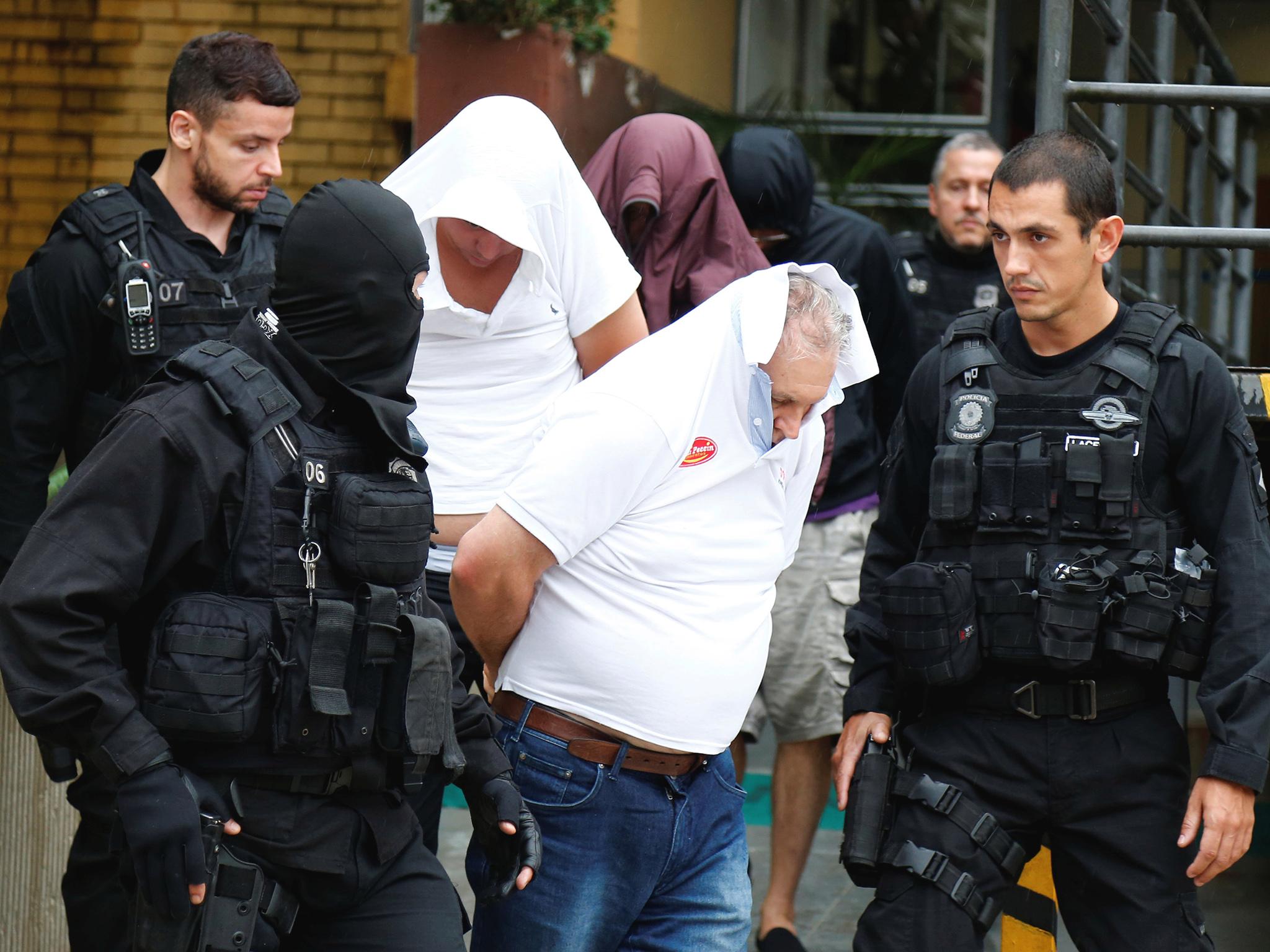Meatpacking companies 'bribed inspectors to keep rotten meat on the market', police say
Brazil's agriculture minister is due to meet with European meat industry representatives following shipments

Two big Brazilian meatpacking companies bribed inspectors to keep rotten meat on the market, police said as they issued dozens of arrest warrants, while a judge accused the Agriculture Ministry of betraying the country.
Part of the money allegedly paid by meatpackers JBS and BRF was channelled to two major political parties, including that of President Michel Temer, police said after a two-year investigation.
On Saturday Agriculture Minister Blairo Maggi said he would meet with ambassadors and representatives of the European meat industry on Monday after investigators said some of the meat was exported there.
Authorities warned the case was a severe blow to the international image of Brazil's agribusiness sector, which officials have been counting on heavily for helping the country recover from its worst recession in decades.
Investigator Mauricio Moscardi Grillo said at a news conference that the two meatpackers used chemicals to improve the appearance and smell of expired meats. He said at least one executive reported that rotten meat was mixed with healthy meat to be sold to consumers.
Cheaper products like water and manioc flour were also blended with meat sold by the two companies, Mr Grillo said, adding that three plants have been shut down.
The arrest warrants were issued on Friday.
The investigator said schoolchildren in the southern state of Parana were fed with dangerous meat. “They are getting food made of outdated, rotten and many times cancerous products so the economic interest of this mighty crime gang is obeyed,” Mr Grillo said.
Police said the meatpackers had direct influence in the Agriculture Ministry so they could pick the inspectors who would visit their plants. Those inspectors would produce sanitary certificates regardless of the adulteration of the products, police said.
In his decision to authorise arrests, Judge Marcos Josegrei da Silva said the Agriculture Ministry has a “staggering” involvement in fraud and corruption. “The ministry was taken hostage by a group of individuals that repeatedly betrayed their obligation of serving society,” Judge Silva wrote.
Mr Grillo said some of the expired meat was exported to Europe. He said four containers of BRF meat contaminated with salmonella were stopped in Italy in 2016, but nothing was done against the company.
JBS and BRF issued separate statements denying any wrongdoing and said they comply with regulations.
“The company vehemently repudiates any adoption of practices related to the adulteration of products,” JBS said. BRF said it “assures the quality and the safety of its products and guarantees that there is no risk for consumers.”
JBS is one of the largest meat processers in the world, producing beef, chicken and pork. It has about 150 plants worldwide and it is based in Sao Paulo. BRF was formed by the merger of two of the best known Brazilian meat processers, Sadia and Perdigao, both from Santa Catarina in southern Brazil. They also produce margarine, pizza and other processed foods.
Eumar Novacki, a spokesman for the Agriculture Ministry, said at a news conference the revelations had caused outrage and would affect Brazil's image around the world. He said Mr Maggi had ordered the suspected inspectors to be removed from office.
“We will take action to punish those who committed this. It is 33 servants in a group of thousands. It is not a routine problem; it is an isolated issue,” Mr Novacki said. “Brazilian meat is in 150 countries because it has good quality. Those countries also have their agencies that inspect products.”
Mr Novacki said there were “very small risks” in consuming meat processed by JBS and BRF. “It is not the majority of the meat. But there is [a risk],” he said. “The three or four plants where this happened were shut down today for us to see what happened in each of them.”
Shares in JBS closed Friday on the Sao Paulo stock exchange down more than 11 percent, while those of BRF fell almost 8 percent.
Mr Grillo said some of the bribes paid to inspectors were channeled to two political parties — Temer's centrist Brazilian Democratic Movement Party and the right-leaning Progressive Party, which is part of the president's governing coalition.
Investigators said federal Justice Minister Osmar Serraglio had been taped in a conversation with one of the leaders of the alleged bribery scheme in his home state of Parana in southern Brazil in which Serraglio calls an investigated inspector “big boss.”
Brazil's federal police said that was not enough evidence to open an investigation of Judge Serraglio, who oversees the force. In a statement, Judge Serraglio said the police raid was a clear sign that he was not interfering in federal police investigations.
AP
Join our commenting forum
Join thought-provoking conversations, follow other Independent readers and see their replies
Comments
Bookmark popover
Removed from bookmarks